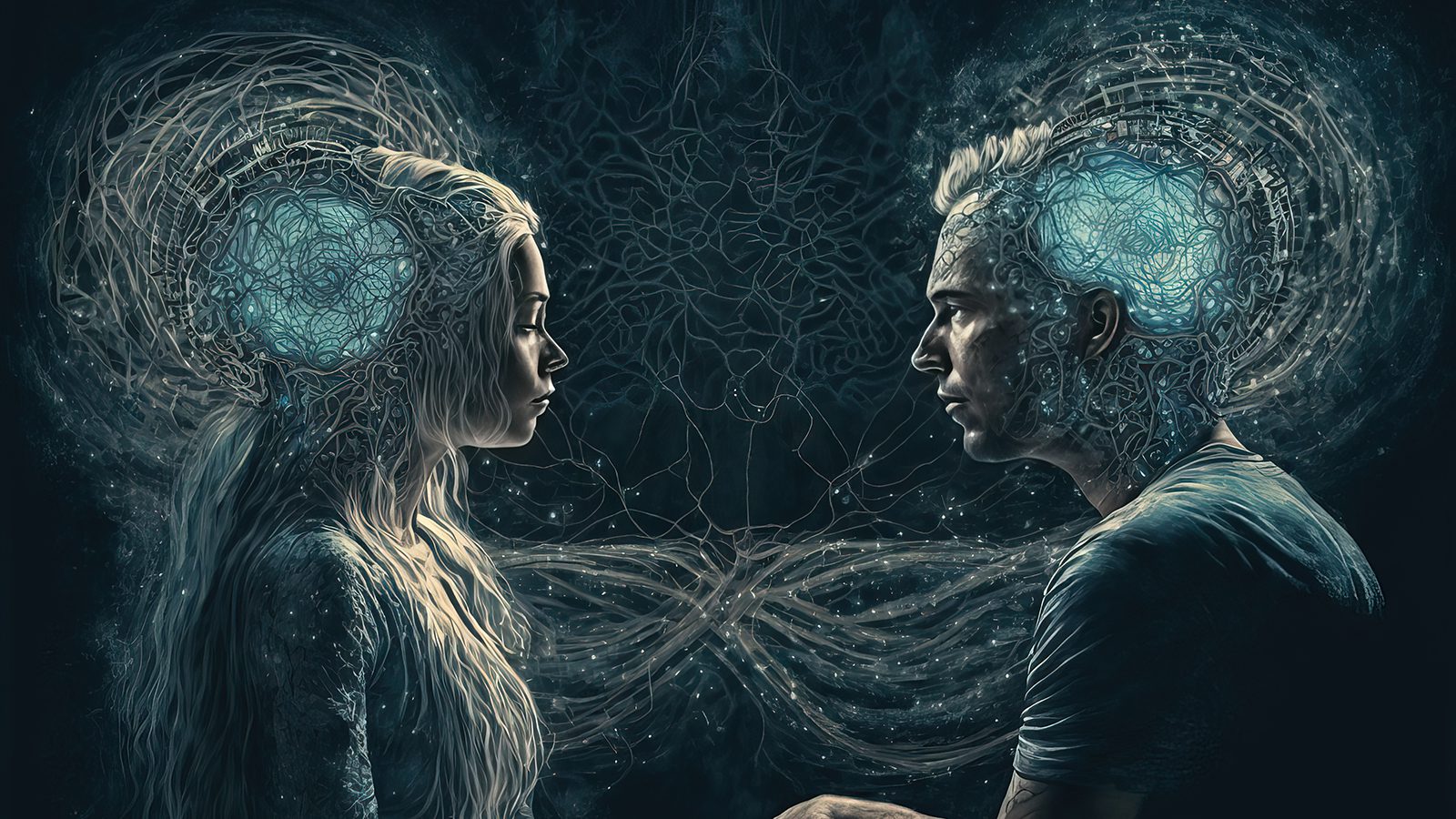Have you ever wondered what happens in your brain when you’re in love? Most people associate love with the heart, but it also produces notable changes in the mind. When you fall for someone, it’s a euphoric feeling that makes it seem like nothing else in the world matters. You can only think about that special someone and how amazing they make you feel.
This level of infatuation and attachment makes you want to get closer to the one who stole your heart. That’s why some say love is blind since your emotions completely take over and cloud your judgment. At the moment, the one you admire seems perfect and incapable of having any faults. But, in time, you learn to accept them wholeheartedly if you genuinely feel a connection and desire a long-term relationship.
Many people feel incomplete without having someone by their side to love. When they meet “the one,” it seems like all their troubles melt away, and they feel comforted and secure. But what drives these emotions in the first place? You may think devotion comes from the heart, but scientists have found that attraction stems from the brain’s reward center.
When you see someone attractive, this region of your brain “lights up” and encourages you to pursue them. We have a biological imperative to seek a suitable mate to reproduce with and further our chances of survival.
However, scientists have discovered that romantic affection differs from the more primitive desire for sexual gratification. Below, we’ll delve deeper into the study of how love rewards the brain and, therefore, promotes emotional well-being.
Science Reveals How the Brain Responds to Love
When you experience lust, the hypothalamus in your brain stimulates the release of the sex hormones testosterone and estrogen. These hormones drive reproduction, an evolutionary need shared by all living creatures.
The next level of romantic love – attraction – involves the brain’s reward center, which produces serotonin, dopamine, and norepinephrine. All these feel-good hormones get released during pleasurable activities like bonding with loved ones and having sex. Dopamine and norepinephrine make you feel giddy and euphoric, which explains why you may have “butterflies” when falling in love.
A surge in these neurotransmitters creates an intense desire and longing for the person you’re attracted to, and you can’t seem to get enough of them. However, serotonin levels decrease as the stress hormone cortisol dominates, a natural response to attraction. In this case, it’s a positive form of stress brought on by emotional dependency, desire, and infatuation.
In these first two stages of intimacy, you may experience sweaty palms, flushed cheeks, a racing heart, and even anxiety. The body can’t differentiate between a rewarding and punishing source of stress, so it reacts the same way. But love rewards the brain since it deactivates the neural pathways that trigger negative feelings, such as fear and judgment.
Then, as attachment deepens, the hormones oxytocin and vasopressin are released. Oxytocin, the “love hormone,” enhances feelings of attachment, calmness, and safety. This hormone isn’t exclusive to romantic relationships; it’s produced during childbirth, breastfeeding, and spending time with friends.
Vasopressin, a chemical produced in the hypothalamus, becomes stimulated during the bonding phase of relationships. As you get closer to someone, this hormone encourages you to remain loyal to your partner and feel protective of them.
When people say they’re addicted to love, it’s easy to see why. All these feel-good chemicals produced in the brain create exhilarating emotions that feel like a temporary “high.” Scientists compare the experience of falling in love to eating sweets or taking drugs since it activates the same reward center in the brain.
Studies Prove How Love Alters Brain Chemistry
If you want further proof that love is a drug, several studies have found evidence that the brain responds positively to affection. In 2005, biological anthropologist Helen Fisher and several colleagues performed a groundbreaking study involving seventeen people who reported being in love. They used functional magnetic resonance imaging (fMRI) to take brain scans of the participants while they viewed pictures of their partners and acquaintances.
After analyzing the 2,500 brain scans, researchers confirmed that the photos of love interests activated dopamine-rich brain areas. Specifically, the primary reward centers — the caudate nucleus and the ventral tegmental area — showed higher activity levels. The caudate nucleus governs reward detection and expectation, while the latter region encourages activities that produce pleasure, focused attention, and reward acquisition.
Both of these primitive areas of the brain help reinforce behaviors that we consider pleasurable, like having sex and eating rich foods. Studies found that these areas can remain active even after decades of marriage. While romance becomes less passionate over time, it still triggers the release of feel-good hormones like dopamine.
A 2011 study by Stony Brook University researchers, including Fisher, discovered that couples married an average of 21 years still had intense activity in dopamine-rich brain regions. That suggests that romantic devotion may change, but it doesn’t always fade.
In fact, the research showed that the pattern of activity in the participants’ brains resembled that of newlywed couples. However, the exhilarating, obsessive love usually transforms into a more compassionate affection after decades of marriage.
These studies reveal love’s incredible power since it can profoundly alter brain chemistry. And it’s possible to keep the spark alive even in long-term relationships, a testament to love’s enduring qualities.
Final Thoughts on Why Being in Love Feels So Good
The brain “on love” resembles someone addicted to food, drugs, or other substances. Like any addiction, loving relationships stimulate the release of feel-good hormones that encourage you to repeat pleasurable behaviors. In this case, your brain becomes flooded with chemicals that urge you to pursue a relationship. Love activates primitive areas of the brain associated with lust, attraction, and the biological need to reproduce.
But it also goes deeper than that — romantic affection drives attachment as it triggers the release of oxytocin and vasopressin. These hormones help you bond with someone and desire a long-term, monogamous relationship. So, the feeling of love may be a chemical reaction in the brain, but it’s also about choosing your partner daily. Years later, you may still feel the same about them as you did in the throes of romance.
















 Community
Community

